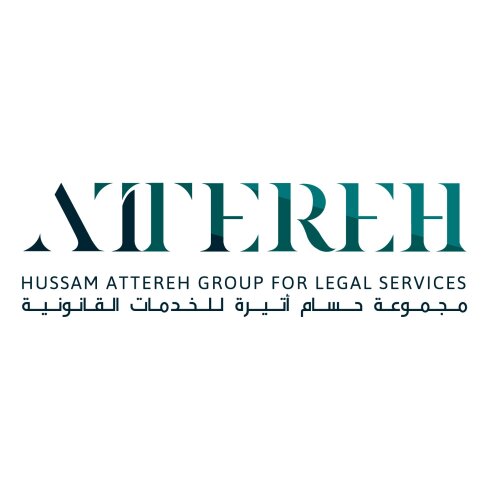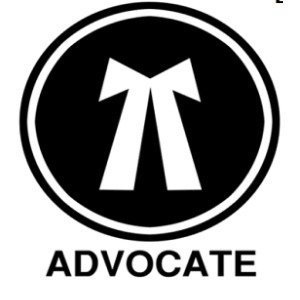Best Structured Finance Lawyers in Ramallah
Share your needs with us, get contacted by law firms.
Free. Takes 2 min.
List of the best lawyers in Ramallah, Palestine
About Structured Finance Law in Ramallah, Palestine
Structured finance refers to highly complex financial transactions that go beyond conventional lending, usually involving the pooling of financial assets and the use of various techniques to manage risk and enhance returns. In Ramallah, Palestine, structured finance is an emerging area, closely tied to the growth of financial institutions, real estate projects, development programs, and investment opportunities. Given the unique legal landscape in Palestine, structured finance often involves compliance with both local laws and international principles, and transactions must be tailored to the Palestinian regulatory, economic, and cultural context.
Why You May Need a Lawyer
If you are considering entering into a structured finance transaction or are involved in the structuring of financial instruments, seeking legal advice is essential. Common situations where legal assistance is crucial include:
- Setting up syndicated loans, securitizations, or asset-backed securities
- Structuring large project finance or public-private partnerships
- Drafting or reviewing complex finance agreements
- Navigating regulatory approval for innovative financial instruments
- Resolving disputes arising from structured products or investments
- Ensuring compliance with both Palestinian and cross-border financial regulations
- Mitigating risks involving multiple parties or jurisdictions
Because structured finance deals are often high-value with significant risks, having a lawyer experienced in both finance and the Palestinian legal landscape can protect your interests and facilitate successful transactions.
Local Laws Overview
Structured finance practices in Ramallah, Palestine, are influenced by several layers of law and regulation. Below are key aspects of the local legal framework relevant to structured finance:
- Palestinian Monetary Authority (PMA) - The PMA regulates banks, lending, and financial institutions, issuing directives that impact lending structures and capital requirements.
- Palestinian Capital Market Authority (PCMA) - Oversees non-banking financial activities, including securitization and the issuance of securities.
- Company Law - The Companies Law lays out the rules for forming, operating, and dissolving commercial entities that may participate in structured finance deals.
- Contract Law - General contract principles apply to complex finance agreements, emphasizing clarity, formality, and enforceability.
- Property and Mortgage Law - Asset-backed finance must conform to local rules on asset ownership, collateral, and security interests.
- Investment Promotion Law - Provides incentives and regulations for foreign and domestic investors, often relevant for large project financings.
- Sharia Compliance - Some transactions may require alignment with Islamic finance guidelines, particularly for banks or investors seeking Sharia-compliant products.
It is also important to recognize that the legal environment in Palestine can be dynamic due to ongoing political and regulatory developments. This increases the need for up-to-date legal advice.
Frequently Asked Questions
What is structured finance?
Structured finance is a set of complex financial transactions designed to support large investments or manage risks through customized financial instruments. These often include asset-backed securities, syndicated lending, and other forms of financing that go beyond traditional loans.
Is structured finance common in Ramallah, Palestine?
Structured finance is an emerging area in Ramallah, mostly used for large projects and institutional investments such as real estate development, infrastructure projects, and cross-border business ventures.
Who regulates structured finance transactions in Palestine?
The Palestinian Monetary Authority regulates banks and lending practices, while the Palestinian Capital Market Authority oversees securities and non-banking financial products. Other government bodies may be involved depending on the nature of the transaction.
Do I need government approval for structured finance deals?
Some types of structured finance arrangements, especially those involving public projects, foreign investment, or the issuance of securities, require approval from relevant authorities such as the PMA or PCMA.
Can foreigners participate in structured finance in Ramallah?
Yes, foreign investors are allowed to participate, subject to due diligence, compliance with investment promotion laws, and any sector-specific restrictions or requirements.
What are the main risks of structured finance deals?
Risks include legal enforceability, regulatory compliance, counterparty risk, and the complexity of the financial products involved. Legal counsel can help assess and mitigate these risks.
Are Islamic finance principles considered in structured finance in Palestine?
In some cases, especially with Sharia-compliant banks or investors, legal structures may need to comply with Islamic finance principles. This requires special attention to contract terms and prohibited activities.
How are disputes resolved in structured finance transactions?
Parties typically specify dispute resolution mechanisms in their contracts, such as local courts or arbitration. Choosing the right mechanism and jurisdiction is crucial for enforceability.
What is the role of collateral in structured finance?
Collateral often plays a central role, especially in asset-backed finance. Palestinian law governs how collateral is created, perfected, and enforced, so legal advice is important to secure your interests.
How do I find a lawyer experienced in structured finance in Ramallah?
Look for lawyers or law firms with demonstrated expertise in banking, finance law, and cross-border transactions. Recommendations from industry bodies or financial institutions can also be helpful.
Additional Resources
- Palestinian Monetary Authority (PMA) - The main regulator for banks and lending institutions in Palestine.
- Palestinian Capital Market Authority (PCMA) - Supervises the securities market and non-banking financial services.
- Palestinian Investment Promotion Agency (PIPA) - Provides support and information for investors, including those involved in large finance transactions.
- Local Chambers of Commerce - Offer guidance and contacts in the finance and investment sector.
- Legal Aid Organizations - May provide basic legal advice or referrals to specialized finance lawyers.
Next Steps
If you are considering structured finance opportunities in Ramallah, Palestine, follow these steps to protect your interests:
- Identify your needs and clarify your objectives for the prospective transaction.
- Consult with a lawyer or law firm specializing in structured finance and Palestinian business law.
- Gather and organize relevant documents related to your project or investment.
- Assess possible risks, regulatory requirements, and compliance obligations.
- Request a legal opinion or due diligence review prior to entering any agreements.
- Stay informed about ongoing regulatory changes that could affect your transaction.
Working with experienced legal counsel will help you navigate the complexities of structured finance in Ramallah, ensuring that your transactions are secure, compliant, and successful.
Lawzana helps you find the best lawyers and law firms in Ramallah through a curated and pre-screened list of qualified legal professionals. Our platform offers rankings and detailed profiles of attorneys and law firms, allowing you to compare based on practice areas, including Structured Finance, experience, and client feedback.
Each profile includes a description of the firm's areas of practice, client reviews, team members and partners, year of establishment, spoken languages, office locations, contact information, social media presence, and any published articles or resources. Most firms on our platform speak English and are experienced in both local and international legal matters.
Get a quote from top-rated law firms in Ramallah, Palestine — quickly, securely, and without unnecessary hassle.
Disclaimer:
The information provided on this page is for general informational purposes only and does not constitute legal advice. While we strive to ensure the accuracy and relevance of the content, legal information may change over time, and interpretations of the law can vary. You should always consult with a qualified legal professional for advice specific to your situation.
We disclaim all liability for actions taken or not taken based on the content of this page. If you believe any information is incorrect or outdated, please contact us, and we will review and update it where appropriate.













